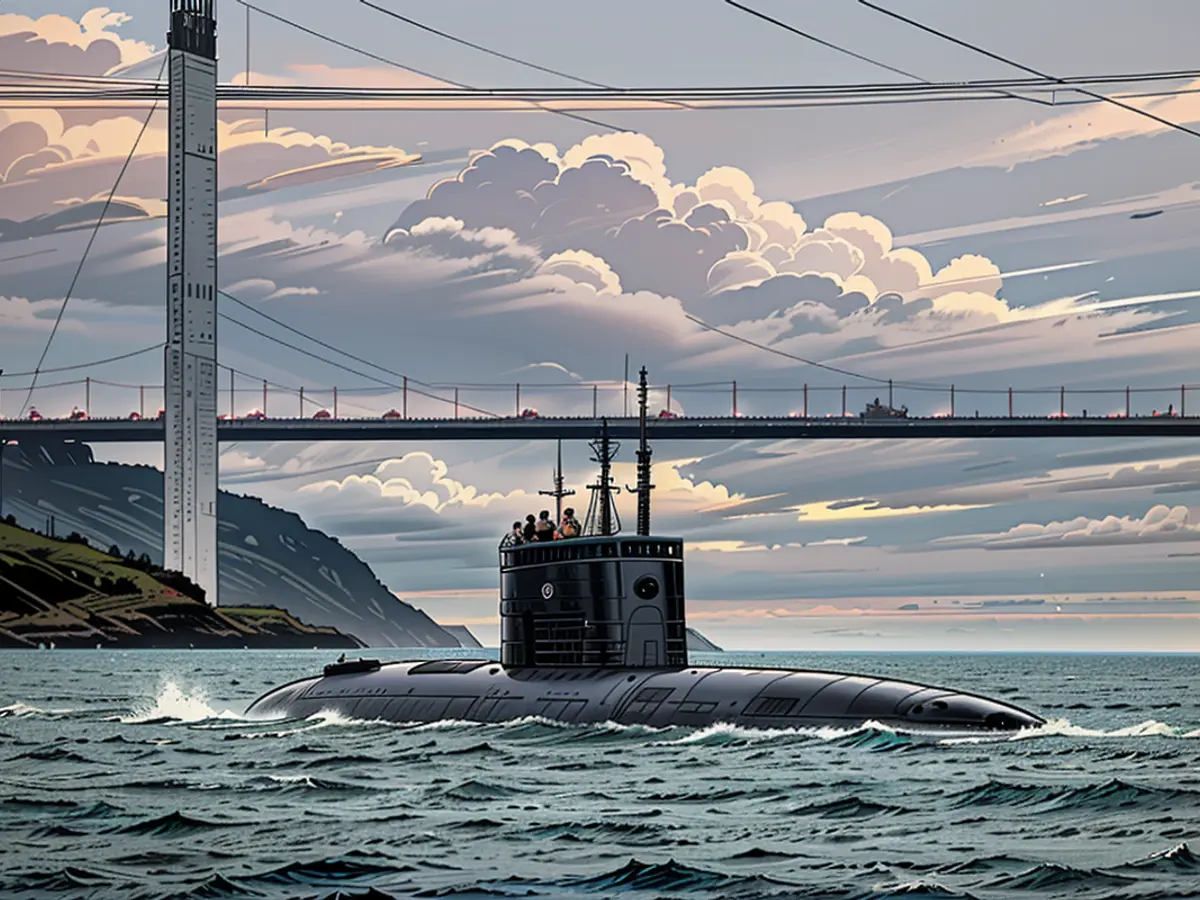Russian submarine sunk in Crimean port, Ukraine claims
The submarine Rostov-on-Don was hit in the port of Sevastopol on Friday, the General Staff of Ukraine’s Armed Forces said in a statement Saturday.
“The boat sank on the spot,” the General Staff said, without providing further evidence.
If confirmed, the sinking would be Ukraine’s latest blow to Russia’s navy, which Kyiv claims has already lost a third of its Black Sea Fleet.
CNN is not able to independently verify the claim, and the Russian Defense Ministry has not commented on the alleged attack.
The alleged loss of the Rostov-on-Don “proves once again that there is no safe place for the Russian fleet in Ukrainian territorial waters of the Black Sea,” the General Staff said.
The Ukrainian Defense Ministry hailed the attack, saying in a post on social media that “a Russian submarine went to the bottom of the Black Sea” after it was attacked in Sevastopol’s port. “As a result of the attack, the submarine sank. Great work, warriors.”
Russia has occupied Crimea since its forces annexed the peninsula in 2014. Since the outbreak of the war in Ukraine more than two years ago, it has come under sporadic attack from Kyiv’s forces.
The Russian-appointed governor of Sevastopol, Mikhail Razvozhayev, said submarine defense exercises were taking place on Saturday, and “everything is calm in the city.”
On a post on Saturday, Russian military blogger Boris Rozhin said the ship repair plant in Sevastopol, where the submarine was docked, appears to have been hit.
Commissioned in 2014, the Rostov-on-Don is a 73.8-meter (242-foot) Kilo II-class submarine and carries a crew of 52. With a submerged displacement of 3,100 tons, the diesel-electric-powered vessel can carry Kalibr cruise missiles.
Taking out Russian assets armed with Kalibr missiles is an important part of Kyiv’s military strategy because Russia has used Kalibr and missiles like it to attack vital Ukrainian infrastructure such as power plants, said Cedric Leighton, a CNN military analyst.
“Hitting this submarine is a big, big deal,” Leighton said.
Ukraine has targeted the Rostov-on-Don before.
The submarine was “severely damaged” in a Ukrainian missile attack in September 2023, according to Ukraine’s General Staff. After that attack, open-source intelligence photos, including ones cited by Britain’s defense ministry, showed what the ministry said was “catastrophic damage.”
But Ukraine’s General Staff said the Rostov-on-Don was repaired and recently tested in the waters of Sevastopol harbor.
Kyiv’s forces have enjoyed sustained successes targeting Russia’s Black Sea Fleet, with either missile strikes or sea drone attacks.
More than 20 Russian naval vessels have now been disabled or destroyed, a third of the entire fleet. Though Ukraine has virtually no navy of its own, technological innovation, audacity and Russian incompetence have given it the upper hand in much of the Black Sea.
Russia’s worst naval loss of the war was the sinking of the guided-missile cruiser Moskva in April 2022.
In October last year, satellite imagery indicated that Russia relocated some of its naval ships away from Sevastopol after a series of Ukrainian attacks.
In addition to striking the submarine, Ukrainian forces also severely damaged four S-400 anti-aircraft missile launchers on Friday, the Ukrainian General Staff said.
Leighton said destruction of the anti-aircraft batteries could help open up the skies over Crimea for Ukrainian warplanes to take on more Russian targets on the occupied peninsula.
The sinking of the Rostov-on-Don, if confirmed, would be a significant setback for Russia's presence in the Black Sea, particularly considering its role in Russia's Black Sea Fleet. Europe and the world are closely watching the developments in the region, given the geopolitical implications.







